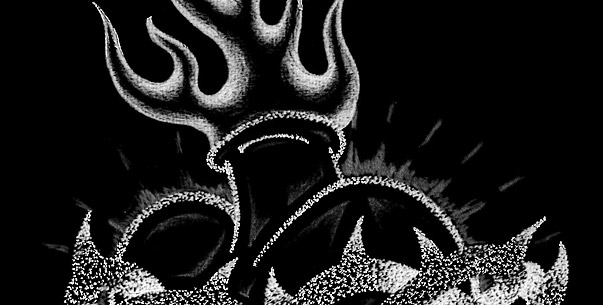|
|
being present with desire
The Buddha taught that sex is a prime source of human suffering. Noah Levine asks: How can sexuality become a teacher rather than a tormentor?

illustration by tattoo artist tsunami
Of all of the energies that we experience, the Buddha spoke of sexual desire as being the strongest. Not just the act of sex, but the whole realm of sexuality, including intimacy, procreation, sexual pleasure and love relationships. These are all aspects of our sexual energy. The Buddha saw it as the strongest of all energies in existence and perhaps the most difficult to relate to skillfully.
Sex is such a strong desire that most religions and most people tend to fall to one side or the other regarding sexual energy. Labeling sex as good or bad, positive or negative, is just a judgment. Sexuality is not anything other than an experience that can be judged as good or bad, but its inherent nature is totally neutral. Sexuality itself doesnít cause problems, but how we relate to the experience is important.
It is completely natural for sexual desire to be present at times. It is also natural for it not to be present. There are some people who donít have much of a sex drive, but it is really natural and universal for most. In so many ways it is just a part of our physical, emotional and mental makeup. If you have a mind and a body, you will most likely experience sexual desire.
The issue here is not about sexual energy itself. Our difficulty lies in our attachment to pleasure, resistance to change, and the lack of skill we have in accepting impermanence. On the cushion in meditation practice we begin to understand that clinging, attachment and aversion are the primary causes of the extra layer of suffering that we create for ourselves.
By paying attention to the breath, body, emotions and mind, we begin to see that if we allow everything that arises to pass, there is a quality of satisfaction in pure awareness. If we try to hold onto or push away mind states and sensations, there is this whole other level of discomfort and dissatisfaction that we create. If we let go for even just a half a breath at a time, there is a relaxation that happens, an acceptance of what is.
Iíve seen in my own direct experience that I have a choice over my actions when Iím paying attention. I donít necessarily have a choice over what arises in my mind, or what sensations arise in my body, but when Iím paying attention to those sensations and thought patterns, I can choose whether to react or respond in a more skillful way. Applying this practice to our sexual urges will allow us to relate to the natural desires that arise, rather than from them.
If we look at our sexual history and our past or present relationships, as well as the relationships of just about everyone we know, we will see that these relationships have been the source of a tremendous amount of confusion and emotional pain. I think it is fair to say that the lack of skill in relating to sexual energy has caused most people to suffer. It is not sexual energy that is to blame, but people who arenít able to understand or deal skillfully with that energy.
Noah Levine, author of Dharma Punx and Against the Stream, is a Buddhist teacher, author and counselor. He is trained to teach by Jack Kornfield of Spirit Rock Meditation Center in Woodacre, CA. He teaches meditation classes, workshops and retreats nationally as well as leading groups in juvenile halls and prisons.
|

